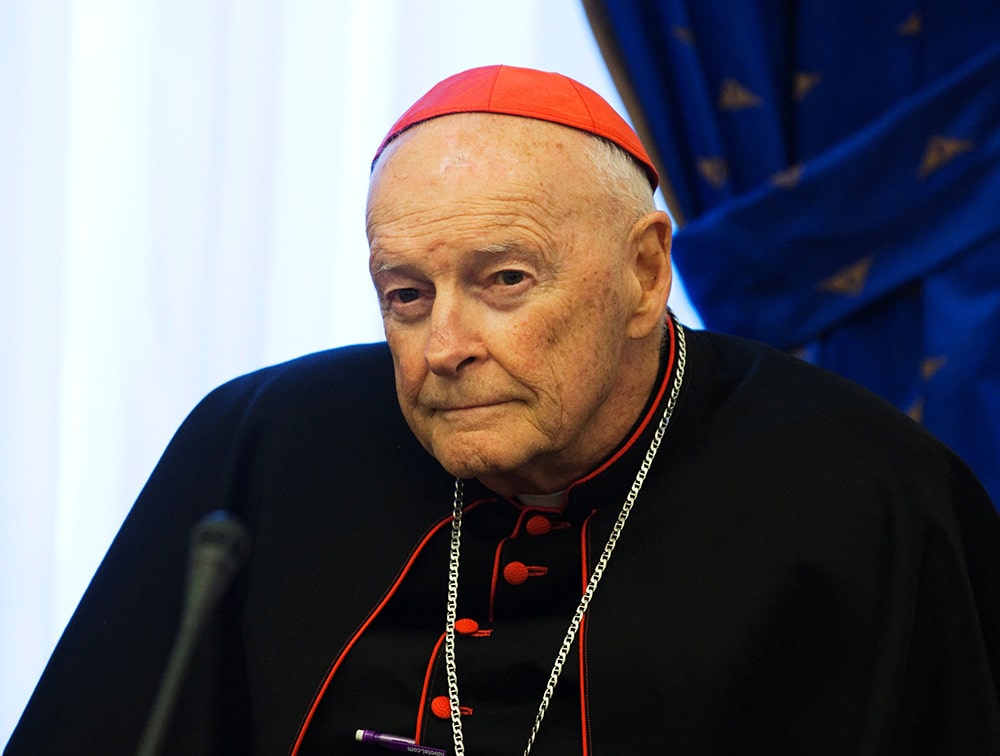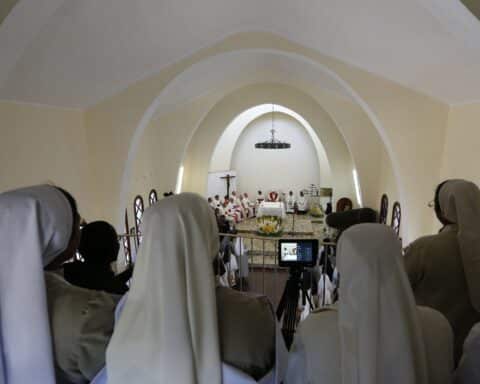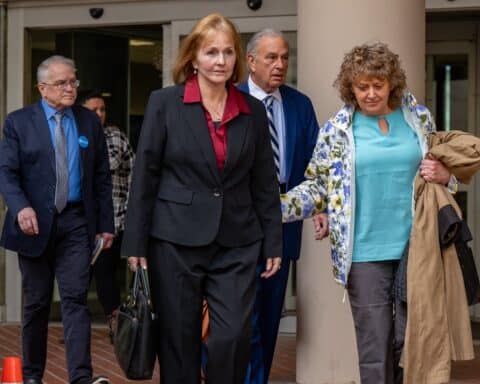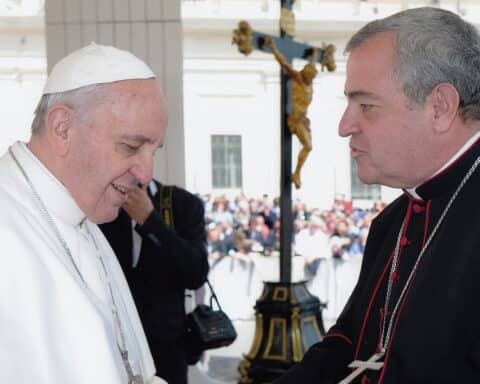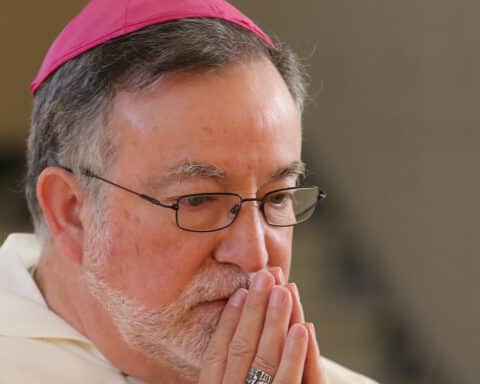The news that came yesterday, of Theodore McCarrick’s criminal charges related to his alleged sexual assault of a 16-year-old boy, was consolation to the long-suffering and sorely tried faithful of the United States. And it sent another round of shock waves through the U.S. hierarchy.
The general response from Catholics was one of relief at the prospect, at long last, of seeing some real accountability from a senior churchman — one universally recognized for the villain he is — while the silence of the bishops’ conference in which McCarrick played so powerful and prominent a role for so long spoke eloquent volumes regarding the mood in that body.
Finally, there will be some reckoning of his wickedness.
Finally, the “secular arm” will pry from churchmen some of the disclosure they have frequently promised, occasionally touted and rarely made.
There is some chilly comfort in all that — more than a little — but there is also more than enough in the news to give us all pause. The world this side of celestial Jerusalem admits of no perfection, while everything comes at a cost. There is no purity in nature. There is no free lunch.
Here, then, are three things to consider as we enter into this new, long hoped-for but little expected course of events to unfold.
The case is not a slam dunk for the prosecution. McCarrick’s accuser alleges he suffered serial abuse, but investigators in Massachusetts are trying to pin McCarrick on one specific incident, which took place at a wedding in Wellesley, Massachusetts, in the mid-1970s.
News reports indicate ample evidence the accuser and the accused had a long-standing relationship. Specifics of the criminal complaint tend to track well with McCarrick’s modus operandi.
While prosecutors generally do not like to bring cases in which they are not confident, it is also a fact that sex crimes are notoriously difficult to prosecute successfully. Just because we know McCarrick is guilty of other things he got away with, doesn’t mean he did this thing. More to the point: It doesn’t mean prosecutors will be able to convince a candid jury of 12 people he did the thing they say he did. That could be a longer row to hoe than people usually realize.
This is not a “victory for transparency” by any measure. The Church’s failure to deliver justice has serious consequences for rule of law in broad society.
The vicissitudes of Cardinals Pell and Barbarin are examples. Cardinal George Pell was accused, tried and convicted of abuse (before Australia’s highest court unanimously overturned his conviction). Cardinal Philippe Barbarin (emeritus of Lyon, France) was accused, tried and convicted of negligence amounting to cover-up. Cardinal Pell did not do the things Australian prosecutors said he did. Cardinal Barbarin did the things, which were unbelievably stupid and very bad, but French justice eventually decided they were not crimes, and his conviction was overturned as well.
Cardinal Pell was the target of unscrupulous investigators and the mark of ambitious prosecutors, both willing to exploit the furious anger of an Australian citizenry appalled at the depth and extent of Catholic hierarchs’ behavior over decades. Cardinal Barbarin was the object of popular opprobrium that translated into a people’s bill of criminal indictment.
Cardinal Pell was innocent of the criminal wrongdoing with which he was charged. Cardinal Barbarin was guilty of wrongdoing that was not criminal. Both men were somehow lightning rods, if not scapegoats. Now, we need to consider whether the corrosive effect of ecclesiastical wickedness is not well advanced into our “civil” counsels as well.
Citizens generally hope that successful prosecution of McCarrick will offer some comfort to his many victims, while Christians especially will hope that the prospect of subjection to secular justice moves McCarrick finally to face his wickedness squarely and admit it to his fellows in humanity, before he faces our Maker. Still, is the trial of a 91-year-old man — a man on death’s door — really anything like the one thing needful?
If the proceedings against him bring facts and documentation into the public record, which may otherwise have remained hidden, then that will be to the good. McCarrick is guilty of some unspeakably horrible things — a canonical tribunal has found him so — but seeing secular justice convict him of one more evil thing will not fix the Church. If the faithful do not practice keen vigilance and cold calculation, the focus will remain on One Bad Actor and the systemic problems will stay in place and keep growing.
In short, there is more than a little risk that this will make it easier for the scapegoating of McCarrick to continue. The cases of Cardinals Pell and Barbarin illustrate that guilty men may be scapegoats as well as innocent ones. McCarrick is guilty — whether a jury will find him guilty of this latest charge is mere detail for these purposes — and churchmen know it. The more attention he gets, the less they do. In other words: McCarrick is not the problem. He’s a symptom and a poster boy for the problem — and that’s more than fair, but it comes with a significant risk and potential downside.
We are all tempted to exhaust our legitimate ire — our righteous indignation — on this one man, and that is exactly why we need to keep cool and coolly focused on the business at hand, which is threefold: determination of his specific guilt in this case; acquisition of all information necessary to understanding not only what happened when McCarrick was powerful, but how the systems he helped build persist in the present; and prosecution of the work to cleanse the Augean Stables of ecclesiastical leadership.
If and when it comes to it, a jury will see to the first. Lawyers and judges will see to some of the second, but journalists and the faithful will need to continue and redouble their efforts in those regards. For the third, it is worth considering that Caesar’s help comes at a price.
There is much in history to suggest the threefold task is more Sisyphean than Herculean, but that is all the more reason to be about it.
Christopher Altieri writes from Connecticut.

